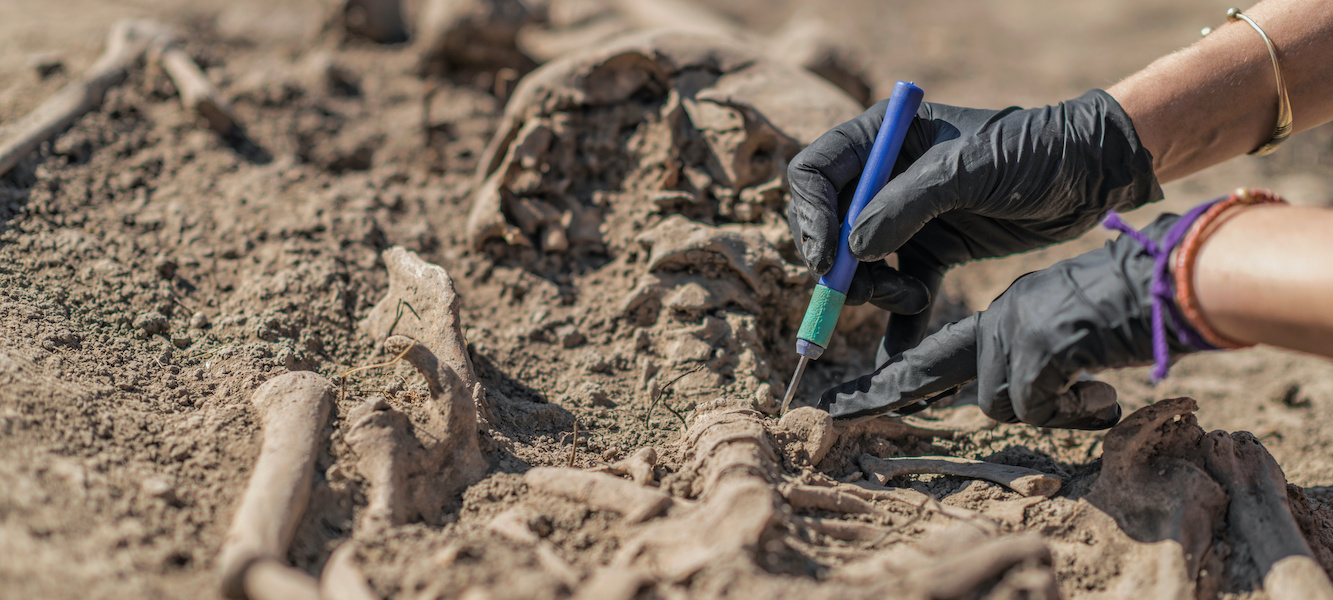
The rapid advancement of technology in DNA analysis has made it so more research is happening faster than regulators can even think to keep up with it.
When it comes to the study of ancient DNA from long-gone individuals, there are currently very few laws governing the research and the practices are generally outside the jurisdiction of institutional review boards.
This has made it so that researchers essentially have to regulate themselves...
Researchers and stakeholders in the studies have called for a collaborative, community-based approach to their practices. However, guidance has not yet been widely accepted or integrated into common practice.
Multiple sets of ethics guidelines have been published regarding the study of ancient DNA, but there's no agreement on a standardized set everyone should follow.
Well, why NOT?
A great question with a complex answer...
The main issue at hand is consent. Most scientific research involving individuals requires consent to participate. You cannot participate in a clinical trial for experimental medicines, for example, without providing written consent.
In cases of scientific research with deceased individuals, consent is either given before death or by the individual's next-of-kin.
But how exactly do you find a next-of-kin for a 1,000-year-old individual?
That's what makes the ethics of ancient DNA analysis complicated.
Here's what many researchers currently try to do...
Scientists usually rely on communities of descendants for consent and try to include them in the research process. These may not be direct-line descendants, but rather people who share ancestry with the ancient individuals being studied.
However, even this can be tricky...
Descendant communities can be hard to locate if the ancient DNA being studied is in an area with a history of people being forced to leave. Studies of ancient DNA in Africa, for example, often present this predicament.
When has it been done wrong?
One recent example doesn't involve ancient individuals, but rather Native Americans from not too long ago and had clear consent from living descendants. In 2021, scientists studied the DNA of Sitting Bull, the famed Lakota leader. In this case, researchers had consent from Sitting Bull's great-grandson and were able to confirm direct lineage via DNA.
So if they had consent, what's the problem?
Well, there was no engagement with the Lakota government prior to initiating the study and just one email sent prior to publication.
Consent from living descendants is essential, so it's good that researchers achieved that...
However, a study of such a revered individual could have broader implications for the entire Lakota community and other indigenous nations. With this in mind, a more ethical (or at least more respectful) approach would have been to include tribal governments in the process.
A similar example of Native American DNA actually did involve ancient individuals. In 2017, scientists studied remains from Pueblo Bonito, an indigenous cultural site in New Mexico that's over 1,000 years old.
Researchers made a pretty cool discovery in this study, which is that Pueblo Bonito was home to a prehistoric matrilineal dynasty.
Unfortunately, there was no consultation at all with the Pueblo and Navajo people who still live in the area.
When has it been done right?
One study, published in 2018, involved ancient indigenous people in Australia.
For this one, scientists were not only given consent from Aboriginal Australian communities all over Australia, but the indigenous communities were involved throughout the entire process.
This study achieved the remarkable feat of righting some wrongs committed in the past. Specific wrongs from the past included removing ancient indigenous remains for study and for display in museums. This genetic study enabled the appropriate return of said remains to the correct locations.
What can be done to ensure ethical study of ancient DNA in the future?
Today's scientists are generally far more ethical than they were 200 years ago...
When archaeologists and anthropologists today go into ancient ruins and burial sites, there's more of a focus on preservation and respect as part of their research. This is starkly different (and better) than the days when artifacts were looted for display in museums.
However, it's important that relevant parties still be consulted and involved with the process.
Even when scientists fail to consult relevant parties, it's often not from an intention to disrespect. Sometimes it's just a failure to properly evaluate what levels of engagement are needed. Sometimes there is also a fear that the relevant parties will interfere with the study in some way... But it's also their right to interfere, isn't it?
While the "right" answer to ethical study of ancient DNA is tricky to nail down, a conversation with all affected parties is a good place to start.